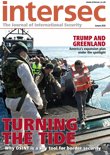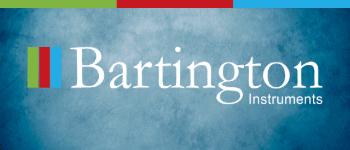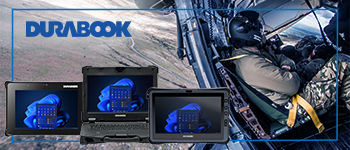Playing with fire
Jeanne McKinney examines the risks of legitimising terror
We see shifting alliances, violent clashes and quests for power between terrorists, militants and rebels all over the Middle East and Africa. In an interview last Autumn, an IDF soldier explained to me this “fighting” Middle East culture that rules the day for those in the region. History backs this up. His position is on the ground seeing and engaging in the actual fight going on against malicious terror that exploded on and after 7 October. This war is criticised by many who have not been there, nor are embroiled in Israel’s challenges, nor have been privy to what is happening while terrorists hold innocent civilians as leverage. This IDF soldier (who prefers anonymity for security reasons) lays out the power struggle using an example of Israel’s challenge to get food into Gaza at that time.
“The world sends international aid into Gaza; Israel enables that aid going into Gaza… Like you see in the film Black Hawk Down in Mogadishu, you see the terrorists that take over the food trucks that the United Nations bring. So, that scene is a perfect portrayal. That is the true Arab, the true Islamic power. [They] take it by force, and if you want anything, you get it from [them], right? [They are] the ‘top dog’. So that is like a microcosm of how the Middle East works. It is the one who carries the biggest stick. It is that simple.”
He continues: “You guys and the West view these militant Arab leaders as warlords as you call them; you have all these negative terms for that. Here in the Middle East, that is what we want. We want the one who has the most power, the most strength… The most honour to be the one who rules us.”
Who earns that “top dog” position by armed conflict wins “the most honour,” at least temporarily, until the stronger tribe ousts them. No one is spared and enemies are shared -– particularly Jewish Israel and Christian Western allies who are the roadblocks and very antithesis of Islamic power rising.
You see this fight for ‘Arab honour’ in Gaza, Syria, Afghanistan, Africa and Iraq written in a river of blood, while trying to force their beliefs on everyone. These terror groups rise and fall until the next competitor outmatches and outmaneuvers them. These militant Arabs are still going to kill each other and kill anyone who tries to stop them as proven in the war on terror across the globe. Videos of beheadings, blowing up schools, mosques, embassies, military barracks, ships, massacres, and planes flying into skyscrapers come to mind, while terrorists speak of “honour”. Is the 12-year old Afghan farmer tending his crops from a wheelchair because an insurgent IED took his legs some kind of twisted honour? Or plain evil?
When terrorists do reach this ‘top dog’ position by violent force, they have turned around and asked for ‘legitimacy’ trying to convince the world they have changed – ie: Afghanistan, Syria. That the centuries-old microcosm has changed. That they are ceding their longstanding tribal codes about ‘honour’ to blend in with Western ways. In the Pashtunwali culture they value bravery over life. For terror groups that ‘bravery’ can mean strapping a bunch of C-4 to someone’s chest and sending them into a crowd of civilians with a detonator.
The Taliban are ready to interact with the world ‘bi-laterally,’ ‘economically,’ and expect everyone to forget how they got to Kabul. There are thousands who cannot forget who gave a piece of themselves to fight them for 20 years, many still living with the Taliban stamp of resistance and hate in disfigured bodies and post-trauma minds. Many veterans are still recovering.
How can we forget since 11 September, the Taliban refused to ‘cooperate’ and hand over bin Laden, then the world’s most notorious terrorist? How do we ignore their role as protector for al-Qaeda; eager to kill NATO troops in years-long counterinsurgency operations?
Although some believe America’s dream for Afghanistan was a flourishing democratic state, the motive from America’s ‘top dog’ President differs with different office holders during the Taliban campaign of terror. For President George W Bush, it started with hunting down bin Laden and al-Qaeda and bringing them to justice.
“The attack took place on American soil, but it was an attack on the heart and soul of the civilised world. And the world has come together to fight a new and different war, the first, and we hope the only one, of the 21st century. A war against all those who seek to export terror and a war against those governments that support or shelter them.” President George W Bush, 11 October, 2001.
Bush also said: “Our war on terror begins with al-Qaeda, but it does not end there. It will not end until every terrorist group of global reach has been found, stopped, and defeated.” A noble quest – he had a plan and legitimacy was not in that plan.
For Obama it was similar, “No safe haven from which al-Qaeda or its affiliates can launch attacks against our homeland or our allies.” Affiliates, of course, including Taliban hosts and defenders.
On 22 June, 2011, Obama said from the White House: “We will not try to make Afghanistan a perfect place. We will not police its streets or patrol its mountains indefinitely. That is the responsibility of the Afghan government, which must step up its ability to protect its people and move from an economy shaped by war to one that can sustain a lasting peace. What we can do, and will do, is build a partnership with the Afghan people that endures –- one that ensures that we will be able to continue targeting terrorists and supporting a sovereign Afghan government.” (National Archives)
“We stand not for empire, but for self-determination. That is why we have a stake in the democratic aspirations that are now washing across the Arab world. We will support those revolutions with fidelity to our ideals, with the power of our example and with an unwavering belief that all human beings deserve to live with freedom and dignity,” continued Obama.
Sounds great in a speech, but that is not what really happened in Libya, Syria or Afghanistan. Meaning involvement was not selectively ideals, but with arms and force.
Obama admitted his greatest mistake in Libya: “was failing to plan for the day after”. What about secretly blessing arms shipments from Qatar to Libyan rebels? “American officials later grew alarmed as evidence grew that Qatar was turning some of the weapons over to Islamic militants, according to United States officials and foreign diplomats,” reported the New York Times 5 December, 2012.
“The weapons and money from Qatar strengthened militant groups in Libya, allowing them to become a destabilising force since the fall of the Qaddafi government,” adds New York Times.
Obama was all about: “extending the promise of America” in Afghanistan and it is believed by some he really wanted to win the war there – having sent 100,000 troops at its peak. “No horizon is beyond our reach,” Obama cited. Except for a land without terror for Afghanistan. His reach was never the Taliban’s reach.
In Syria Obama launched Operation Timber Sycamore to train and supply weapons to Syrian rebels. Now Syria is facing a second civil war after localised terrorist group Hay’at Tahir al-Sham (HTS) ousted the Assad government. HTS leader, al-Sharaa, also seeks what amounts to as the: “legitimacy of power.” Shaking hands with President Donald Trump to “lift sanctions” while mass killings continue between remaining government forces and ethnic Arab rivals, al Sharaa is unable to contain them.
“He could not keep control of the radical Islamist factions allied with him and by the Sunni supporters who responded to his call for general mobilisation, due to a lack of sufficient numbers among the disciplined troops who responded to him.” Le Monde, 10 March, 2025.
George W Bush Presidential Center reports: “Two years after capturing power in Kabul, the Taliban have intensified their campaign to impose authority over all of Afghanistan’s territory and society through dictates and brutality. Although their extremist ideology caters to their hardline followers, their claims to legitimacy are shaky at best.
“More than a stamp of approval from the rest of the world, the Taliban also want to increase their access to cold, hard cash.”
Since 2021, the current Taliban has operated on two sides: a reformed, even diplomatic optic to the press while corruption and kleptocracy reign behind closed borders and doors. In simple terms thievery, extortion, punishment and propaganda all while pursuing favourable global standing.
“They must purchase loyalty from fighters and send a clear message to anyone who resists. In capturing the Afghan state, the Taliban have significantly upgraded their access to resources to accomplish these ends. Not only have they weaponised their hold on Afghanistan’s resources by controlling access to the country’s goods and the government’s services, but they are in the perfect position now to loot it for their own individual gain,” says George W. Bush Presidential Center.
The Taliban monopoly of information makes it difficult to monitor what they do.
“The root cause of the humanitarian crisis is the Taliban’s policy,” an Afghan journalist says.
The reality is that the group asking for inclusion on a world stage forces child labour, making young children to work in brick-making factories or beg on the streets. They exploit the $7-billion in abandoned military equipment as a lucrative stockpile for smuggling operations. They have profited handsomely from illicit drug trafficking “despite an ideological aversion to drug consumption,” says the Bush Center, which recognises: “the rapid rise of extreme poverty and lack of economic opportunity triggered by the Taliban ban on women working have pushed many Afghan families to make desperate decisions to survive, including selling their own children.”
Some thinkers are falling for this armed insurgency “making greater use of a key instrument of state: diplomacy. This is a natural continuation of the negotiating skills it garnered while working out its 2020 peace and withdrawal agreement with US officials during meetings in Qatar.” (The Washington Institute for Near East Policy)
“Since the Taliban took over Kabul in August 2021, the group has sought international recognition for its Islamic Emirate of Afghanistan.”
If the Taliban want their slate wiped clean to interact with the International community, only the gullible who forget who they are likely to buy into that. Or someone who creates a non-combatant dependency like China.
Israel knows the revolutionary road to power in the Middle East is far from legitimate better than anyone surrounded by Islamic Arabs, some making it their life to fight with each other and destroy those not of their faith. It does not take long to see their true intentions when they ask to be noticed in some new way.
Syria’s “transitional” leader al Sharaa is blamed for two rockets that crossed from Syria to Israel on 3 June for the first time since a year ago. The quest for honour through terror is plagued with dangerous liaisons and the entire breakdown of nations, civil war and thousands of casualties whose names are never remembered in the cultural microcosm of terror.
America must keep the lines of deterrence from transitioning to legitimising terror. That its moral codes of war remain honourable and its goals and missions succinct. We can never forget the people who pay the high price as Islamic terrorists fight for top dog status in Afghanistan, Iraq, Africa, Syria, Gaza, etc… Although they have a “right to self-determination” as my IDF soldier says, they do not have the right to force Islam upon others by violence or otherwise.
Jeanne McKinney is an award-winning military journalist, book author and documentary filmmaker. She recently published the true historical account of Triumph Over the Taliban: The Untold Story of US Marines’ Courageous Fight to Save Camp Bastion (now on Amazon). McKinney also wrote, directed, and is currently producing a documentary series called Ronin 3: The Battle for Sangin – that follows 3rd Battalion, 5th Marines through a labyrinth of murder holes and IEDs in a heavily entrenched Taliban stronghold in 2010.









